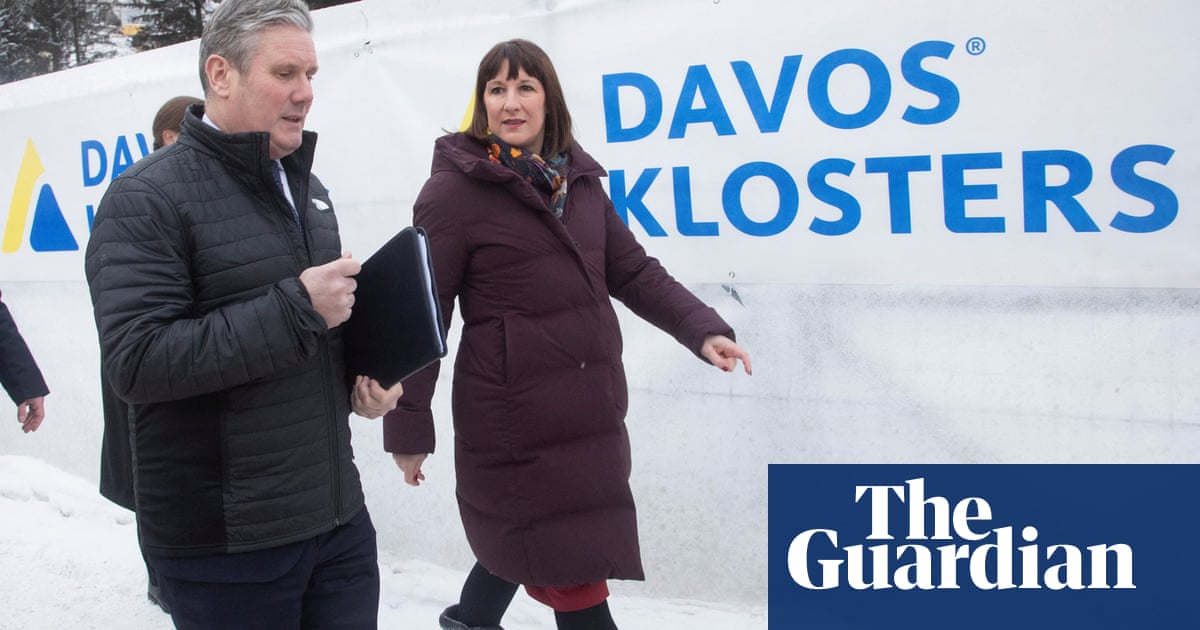
When writing profiles on Rachel Reeves, eight out of 10 journalists like to record her past as a chess champion, largely as a pretext for chuckling through metaphors about gambits and defensive positions.
Never in danger of prodigy status, these days I skulk on a chess app, slugging it out with other amateur thugs. But as Reeves and Keir Starmer settle into Downing Street, one of the game’s sayings returns to my mind. It’s from the Polish grandmaster and wit Savielly Tartakower, who observed: “The blunders are all on the board, waiting to be made.”
The blunder is a huge, match-losing error, which only becomes obvious in hindsight. Tartakower is saying that however good either player is, the board will confer a defeat. You can take his point further: loss may not come from that rash exchange, but the foolproof strategy you swore would win. That lesson is one that Labour’s leaders should bear in mind.
Starmer and Reeves don’t do surprises. Deliberative as any club player, they make a plan and stick to it for as long as is tenable. That way, they present the tiniest of targets for opponents and the press.
Over the previous five years, No 10 served sketch writers and columnists a sumptuous feast: a malfunctioning droid (Theresa May), the blond Nero (Boris Johnson) and ChatGPT Thatcher (you know). Now the pack tails this prime minister from Westminster to Berlin to Paris, eager for slips and scandals. Pickings are so thin that not one, but two of the Mail’s star writers grouse that their man is an “undertaker”.
Yet the blunders are all on the board. One theory about the general election is that it was a verdict on the party of wine-time Fridays and gold wallpaper. Britons were sick of being led by donkeys in blue rosettes, runs the story, so they shooed them out. Some around Starmer believe this, and by making this week’s speech in the Downing Street rose garden, the prime minister reminded us that it was the setting for Johnson’s lockdown-busting bacchanalia – of which he was the sober opposite.
But election polling reliably showed that the public’s biggest worry was the economy. As I wrote at the campaign’s launch, Rishi Sunak’s humiliation was already as good as sealed by two factors. First, the last parliament was, as the Institute for Fiscal Studies judged, the worst for living standards for which there are comparable records. Rocketing fuel bills, soaring food prices, medicine shortages – voters don’t forget such things, and in July they did not forgive. Second, with hospitals and schools at breaking point, the tax burden hit a 70-year high. The electorate is paying more for less.
Game over. These are the 10-ton facts of British government after the pandemic, after the banking crash, now the era of free money and cheap energy is over – and on those, Starmer is barely different from Sunak. Labour committed itself to plans that imply spending cuts of about £20bn every year – beyond the £22bn of savings for which Reeves has spent this summer scratching around.
This was no oversight, no unforced error: it was core to Starmer’s plan for winning, by robbing critics of their chance to snipe about a “debt bombshell” and the like. A great election strategy, a dire platform for government. The blunders are all on the board.
The most important political moment for this winter did not come from Starmer. It wasn’t in a speech, or a treaty. It was the announcement from the energy regulator that gas and electricity prices will go up by 10% from the start of October, taking the average annual bill to more than £1,700. While fuel bills are nowhere near the peak they hit in the winter of 2022-23, they remain far above the levels that we were used to. As Katie Schmuecker of the Joseph Rowntree Foundation says, for lower income households, this is “an unrelenting cost of living crisis”.
As the country learned last time, higher energy prices blow out nearly everything else, from grocery bills to school budgets. The big difference is that today, there is far less state support. No Tory cost of living payments to people on benefits, worth £900 a year. A much-reduced winter fuel allowance for pensioners. Reeves may well resurrect the household support fund of small handouts for the worst hit, but that is a cocktail umbrella in a gale.
Cast your mind forward to this winter. The bills are hitting the mat, and taxes are going up. This week, Starmer called these “the big asks … short-term pain for long-term good”. But there have been years of supposedly short-term pain. Over 4m low-income households are already in arrears on at least one bill or debt, while the number of poor households going without food, heating or toiletries hasn’t dipped below 7m in two years.
The NHS in England needs an extra £38bn a year to cut backlogs. Seven years after Grenfell prompted all manner of promises about ending the scandal of dodgy cladding, a tower block on the other side of London erupted in flames. After Covid, after double-digit inflation, after austerity, millions of families and whole swaths of our public services are exhausted.
This picture is clear in the statistics and from wandering down the dilapidated high streets of much of Britain, including those towns that saw racist pogroms earlier this month. Yet it barely registers in Westminster discourse. Instead, the newspapers truffle out tasty morsels about Morgan McSweeney v Sue Gray – office politics instead of actual politics, debates about desks rather than social housing.
Commentators ask for Starmer’s vision, without interrogating his actual promises. Take Labour’s pledge to achieve “the highest sustained growth” of all the G7 richest countries – a feat not in any government’s gift. How would Starmer do that, by locking up Kamala Harris and Emmanuel Macron?
The great fight of this parliament won’t be over blueprints or programmes. It will simply be about the degree to which a Labour government is able to show that it can protect its society from a new era of economic instability, while repairing the vast damage done by years of spending cuts and pushing teachers, nurses and other public servants to the very limit. On all this, the very compromises Starmer made to get into power will limit his ability to do much with that power.
The blunders are all on the board, waiting to be made.
Aditya Chakrabortty is a Guardian columnist











